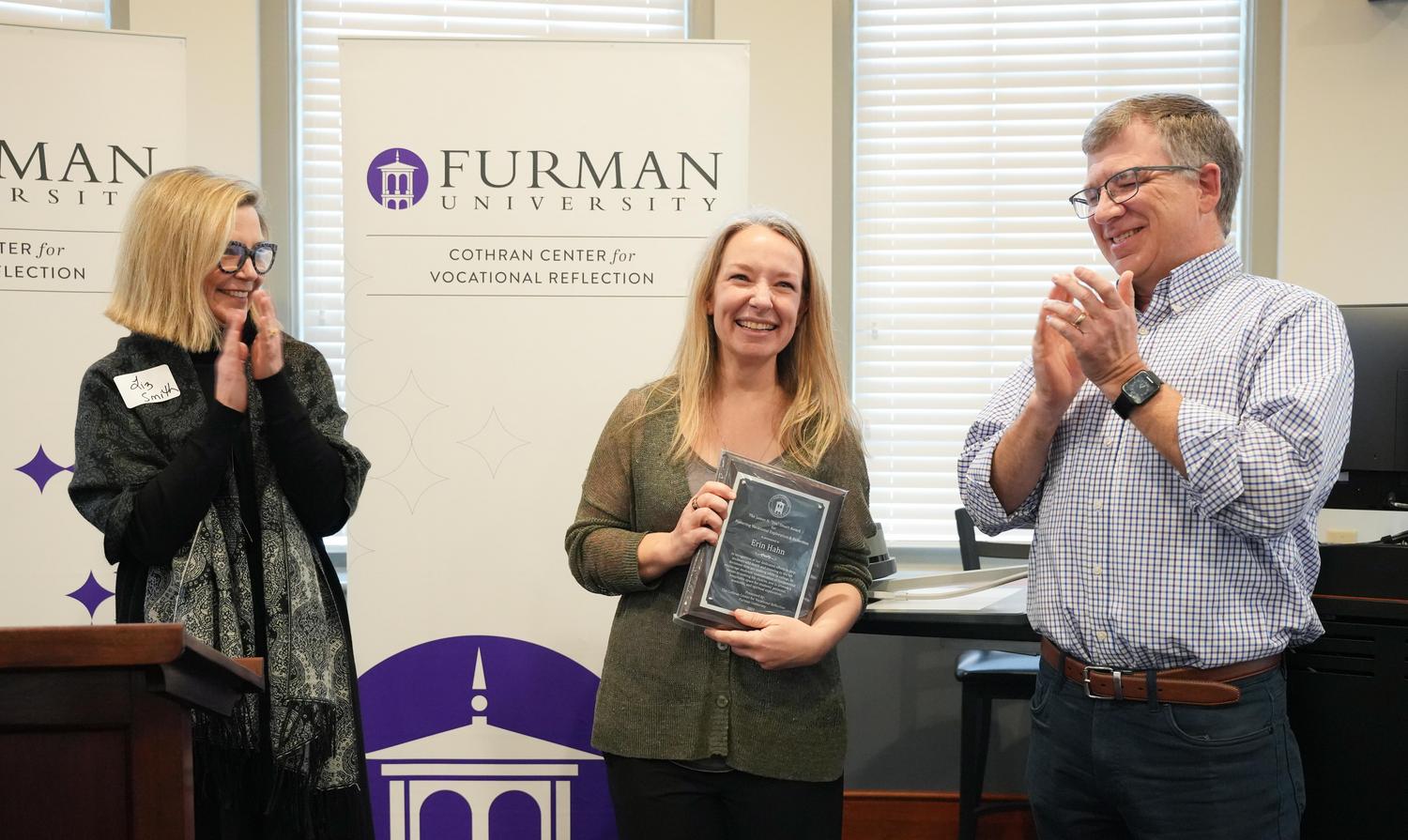Program Overview
Table of Contents
What is an earth and environmental sciences degree?
How do we achieve an environmentally safe and socially just space for life in a world of increasingly limited natural resources? That quintessential challenge lies at the heart of Furman’s Department of Earth, Environmental, and Sustainability Sciences. The Earth and environmental sciences major is a course of study that takes a holistic, systems-based approach to studying the physical, chemical and biological natural and human processes, in both time and space, that have shaped the planet. Courses are designed to help teach the complexity, interconnectedness and dynamic nature of the Earth system and to seek solutions to address geological, environmental and natural resource sustainability issues, culminating in a Bachelor of Arts or Bachelor of Science degree.
Why study Earth and environmental sciences at Furman?
Furman’s location at the foothills of the Blue Ridge Mountains and proximity to the Atlantic Coast provide easy access to a geologically, ecologically and socially diverse region with ample opportunity to integrate field experiences into your education. Our philosophy of teaching through research provides every student the opportunity to conduct collaborative field research with our faculty. As a private liberal arts and sciences university, Furman provides an exceptional environment for multidisciplinary studies, allowing students to find connections between multiple areas of interest. Small class sizes give students increased access to professors who are among the best in their fields. Our focus on engaged learning leverages Furman’s strong undergraduate research, internship and study away opportunities. Plan a visit to our beautiful campus or request information to learn more.
How will you learn?
All of the courses, including the introductory classes, involve a field component. Student experiences include extensive use of the campus living and learning laboratories, as well as field trips to places like the Okefenokee Swamp, Great Smoky Mountains National Park, Mammoth Cave National Park and the South Carolina coast including the Cape Romaine Wildlife Refuge and the many barrier Islands along the coast. The highlight of the B.S. degree is an original research project completed in collaboration with a faculty member, the results of which are presented by the students as lead authors at a local or national professional conference. You’ll be involved in a first-rate, in-depth focused research program and have access to our Engaged Living programs. Visit our campus or request information to learn more.

Careers for Earth and environmental sciences majors
Earth and environmental sciences majors develop an interdisciplinary scientific understanding of how the Earth and our environment work. With the knowledge and experiences gained from field trips, instrumentation skills and GIS/Remote Sensing skills, students can create their own career pathways that fit their interests and ambitions. Many undergraduates go on to continue their studies in renowned graduate schools.

A degree in Earth and environmental sciences can lead to rewarding work in fields and vocations such as:
- Field geologist in mineral/hydrocarbon resources exploration and exploitation industries
- Environmental consultant
- Climate scientist
- Environmental conservationist
- Fluvial geomorphologist
- Consulting geologist in private, state, federal agencies
- GIS technician
- Water quality technician
- Graduate student pursuing master’s or doctoral programs (mostly fully funded)
- Work with local and national NGOs
Featured Earth and environmental courses
-
94.6%percentage of full-time Furman faculty with the highest degree in their fields
-
9 to 1student to faculty ratio throughout the university
-
No. 2Forbes’ Top Colleges in S.C.
What our students say
Our faculty

Karen Allen

Brannon Andersen

Ruth Aronoff

Gustavo Coelho

Matthew Cohen

Geoffrey Habron

Emma Hunt

Valeska Minkowski

Suresh Muthukrishnan

Courtney Quinn

Melissa Ranhofer

Earth and Environmental Sciences Major F.A.Q.
Many graduates have gone on to successful careers as geologists, attorneys, research assistants, GIS technicians, environmental scientists, teachers and analysts. Any career path is possible, and the pathways program ensures that students get individual mentoring to reach their career goals. A healthy percentage of students go on to pursue graduate degrees in some of the world’s most renowned institutions.
On average, graduates could earn $53,200 a year or more, with potential wages of $94,800 or higher, according to an Emsi report.
Typically, it takes four years to earn a B.A. or B.S. in Earth and environmental sciences at Furman.




